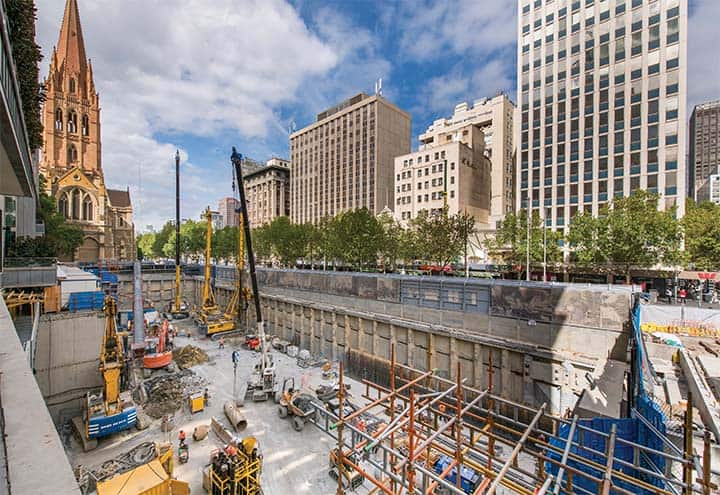Dust Suppression: What Is It and Why Is It Vital in Construction Sites?
- Written by News Co

Dust is one of the biggest hazards present in construction sites.
The extraction, handling, and transfer of materials and ground excavation in construction sites generate large quantities of dust which are not only a nuisance but also present significant health hazards to anyone exposed to them.
Dry sweeping the construction site, raking mortar, sawing and sanding timbre, and cutting paving slabs are specific activities that cause the spread of more dust in the area.
These activities and machines release respirable crystalline silica or RCS, a type of respirable or inhalable dust which is the most common health risk for construction workers.
It is the leading cause of different health issues, including pneumoconiosis, asthma, chronic obstructive pulmonary disorder or COPD, and lung cancer.
Aside from crystalline silica, other types of mineral dusts, such as cement and coal dust, can be found in construction sites.
All these particles can increase the risk of workers developing various respiratory diseases.
Controlling Dust in Construction Areas
Dust suppression refers to the process of controlling and eliminating dust and other particles in areas where they are prevalent.
It is usually done by applying or spraying liquid to the ground to inhibit the spread of fine particles in the air.
Dust suppression systems come in different types. However, they all include the use of mobile bowsers and the spraying of water to capture the dust particles and bring them to the ground, decreasing the quantity in the air that people can inhale.
The best dust suppression spray systems use technology that makes water work better to eliminate the particles. They help control dust while ensuring the ground is still safe for both pedestrians and vehicles.
Importance of Dust Suppression on Construction Sites
The most critical role of dust suppression in construction sites is helping keep workers safe and healthy as they go about their activities.
With dust kept to a minimum and the use of additional protective gears, such as masks, you can help prevent employees from inhaling dust and other particles that can harm their health.
Additionally, dust can also cause eye and skin infections. Minimising the prevalence of these particles and providing safety glasses and masks, gloves, and protecting coveralls to your employees ensures you give them additional protection.
Dust and other particles from the construction site can also travel to other places, including neighbouring residences and businesses. The right dust suppression technology prevents these substances from reaching these areas and causing health problems and other issues to other people.
Finally, dust and pollutants travelling through the air can also impact the sources of water near the construction worksite. This, in turn, can cause health issues among animals and damage plants that are found nearby.
Other Industries That Can Benefit From the Use of Dust Suppression Solutions
Aside from construction businesses, there are other industries and worksites that can benefit from using dust suppression technology.
Areas where buildings and other structures being demolished are surrounded and covered by silica and wood dust and other related particles.
Keep the harmful dust and particles to a minimum with the right dust control system.
The dust suppression technology you use pressurises water and transforms it into a fine mist. It then mixes in with the dust and other particles and prevents these from spreading around the worksite.
The various activities happening inside underground and industrial mines, including coal mines, generate plenty of dust that can cause respiratory problems in workers. It can also be a contributing factor for maintenance issues for all machinery and create a potentially explosive environment.
In coal mines, injuries and deaths caused by exposure to coal dust are common occurrences. Mining companies can dramatically reduce these risks by applying rigorous dust suppression safety measures.
Dust suppression technology that uses water is the ideal solution for such worksites. The spray can suppress the dust as soon as it is generated from a coal extraction site and other areas where it is produced.
Dust is also a common problem in chemical processing industries. The processing and grinding of materials, dumping bags of materials into reactors, and the transportation of powder products on belt or rotary-screw conveyors all contribute to the proliferation of harmful minute particles.
Controlling dust in chemical industrial plants is also integral in these worksites, since the particulates can cause the formation of combustible clouds that can create a fire hazard or trigger an explosion.
In such areas, dust guns are often installed in places the particles are released and used once the area gets dusty.
Dust control misting systems are also excellent options since they are more efficient in spraying water in industrial worksites.
Golf courses, commercial landscapes, and other outdoor spaces are prone to accumulating dust and other particles that can make these places look unappealing.
Moreover, dust in these areas can also cause health issues among people who frequent these areas.
Dust suppression is crucial in these areas since this technology can help keep the plants retain moisture, which will enable them to stay healthy and grow.
Moreover, this solution ensures these commercial places stay dust-free, making them more appealing and healthy for all visitors.
Dust can be a nuisance and health hazard. With the right technology, you can manage this issue in your construction or work site.














